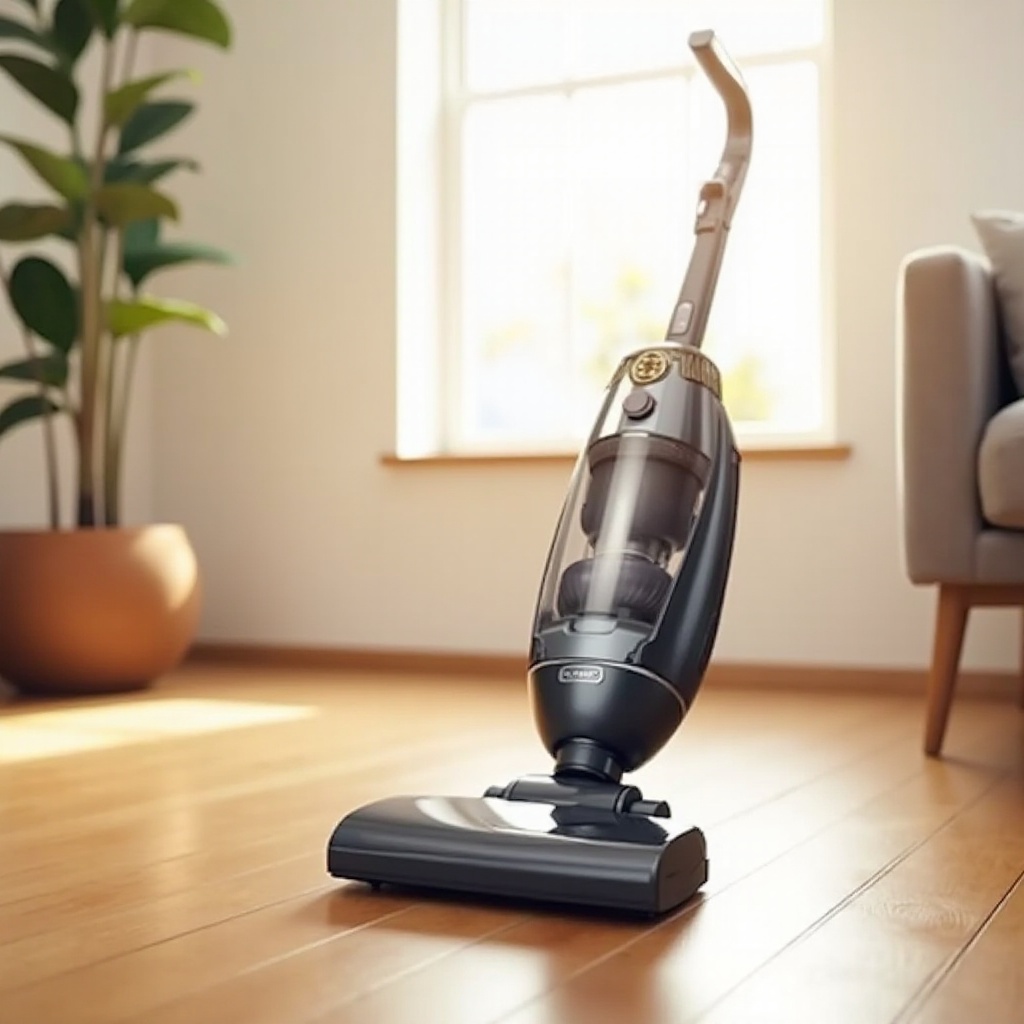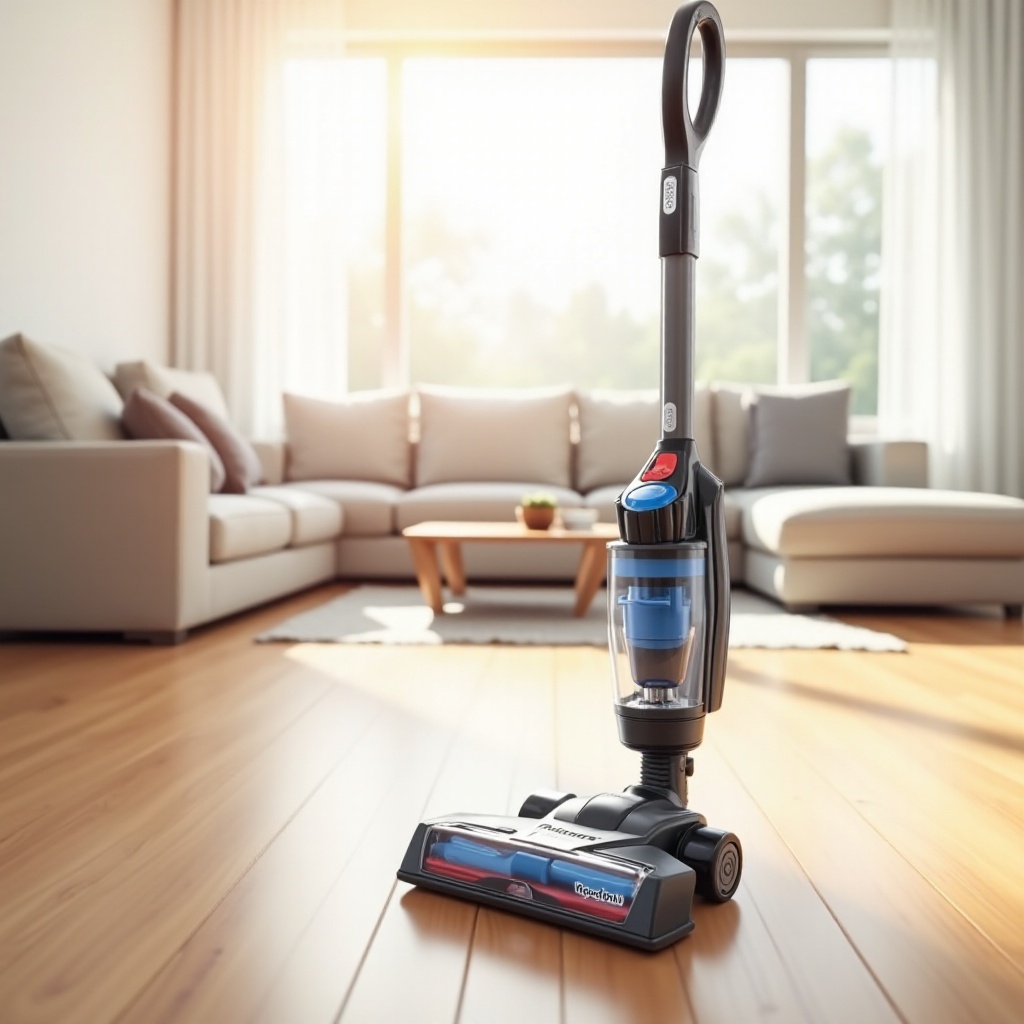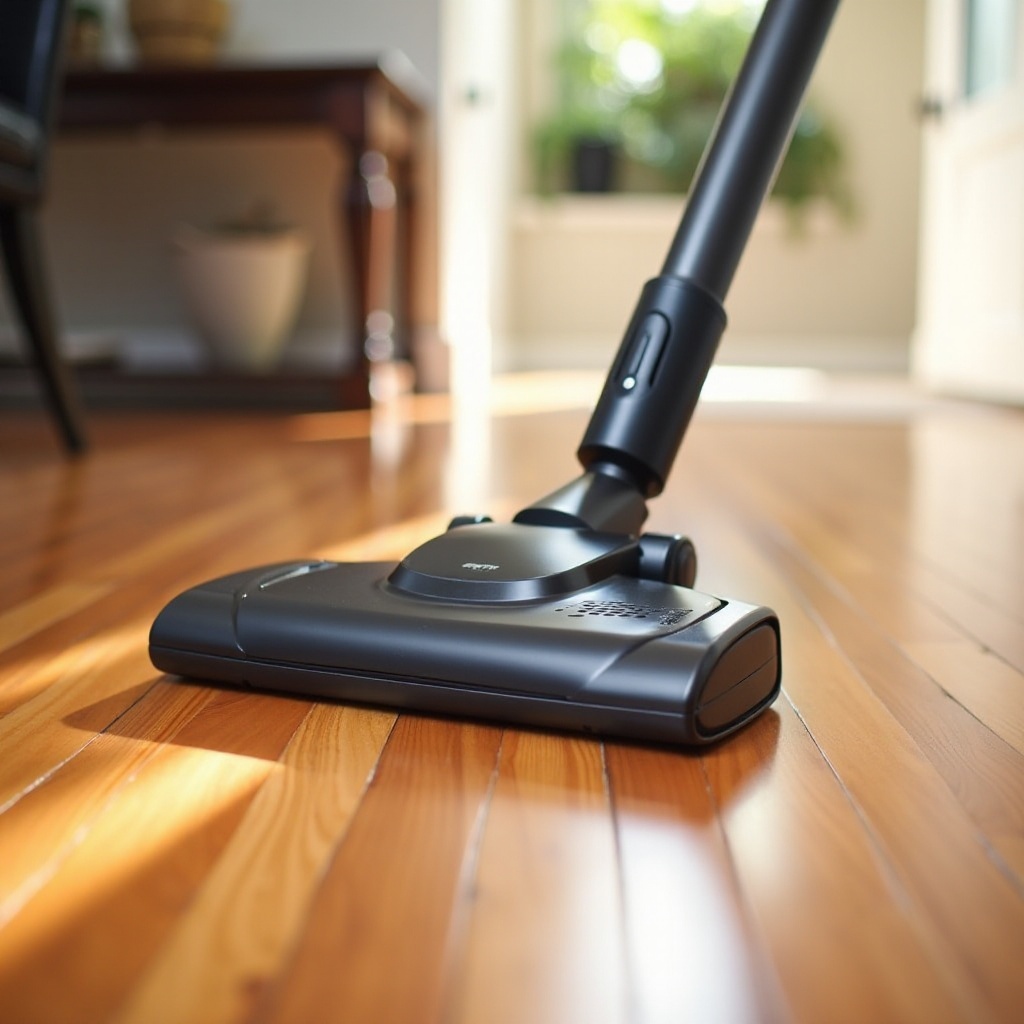Introduction
Hardwood floors exude elegance and add value to any home, but maintaining their luster requires the right tools. Choosing the best floor vacuum for hardwood is crucial to preserving their beauty. With the myriad of options available in the market, it can be overwhelming to make a choice. This guide aims to simplify that process by highlighting why hardwood needs special care, identifying key features to look for in a vacuum, and reviewing the top models in 2024. Additionally, we provide user reviews and maintenance tips to ensure you get the best value for your investment.

Why Hardwood Floors Need Special Care
Hardwood floors are not just aesthetically pleasing; they are also an investment. Unlike other floor types, hardwood can be easily damaged by dirt, debris, and improper cleaning techniques. The natural fibers in hardwood can be scratched by abrasive particles, leading to visible damage over time. Additionally, using the wrong vacuum cleaner can leave unsightly marks or even strip the floor’s finish. Moreover, hardwood floors are susceptible to moisture, which can cause warping or swelling. Therefore, it’s crucial to use a vacuum that can effectively remove dirt without using excessive water or steam. The right hardwood floor vacuum will help maintain the floor’s pristine condition while safeguarding it against potential damages. By understanding these specific needs, you can select a vacuum that not only cleans but also protects your hardwood floors. Let’s delve into the key features that a hardwood floor vacuum should possess.
Key Features to Look for in a Hardwood Floor Vacuum
Suction Power and Efficiency
Suction power is a critical feature in any vacuum cleaner, but it is especially important for hardwood floors. Effective suction ensures that dirt and debris are completely removed without the need for multiple passes, which reduces the risk of scratches and wear. Efficient vacuums also save on energy and reduce cleaning time.
Brush Roll Type and Material
The type and material of the brush roll can make a huge difference. For hardwood floors, it’s best to have a vacuum with a soft-bristle or alternative brush roll designed to prevent scratching. Some vacuums even come with an adjustable brush roll setting that allows you to raise or lower the bristles depending on the surface you are cleaning.
Weight and Maneuverability
Hardwood floor vacuums should be lightweight and easy to maneuver. Bulky or heavy vacuums can be cumbersome, making it difficult to navigate around furniture and into tight spaces. Lightweight models reduce strain while cleaning and enhance the overall user experience.
HEPA Filtration and Allergen Control
Maintaining indoor air quality is essential, and this is where HEPA filtration comes in. A vacuum with HEPA filters will trap small particles, allergens, and dust mites, preventing them from recirculating in your home. This is particularly crucial for households with allergy sufferers.
Noise Level
Nobody wants a noisy vacuum, especially if you have sleeping children or pets. Look for vacuums that operate quietly without compromising on power. Many modern vacuums are designed with noise reduction features, making your cleaning routine more pleasant.
Top 5 Best Floor Vacuums for Hardwood in 2024
Here are the top five models that stand out in 2024:
Model 1: Features, Pros, and Cons
- Features: Powerful suction, soft-bristle brush roll, and HEPA filtration.
- Pros: Excellent maneuverability, lightweight, and quiet operation.
- Cons: Slightly higher price point.
Model 2: Features, Pros, and Cons
- Features: Adjustable brush roll, high suction efficiency, and dustbin capacity.
- Pros: Ideal for large areas, comes with various attachments.
- Cons: Heavier compared to other models.
Model 3: Features, Pros, and Cons
- Features: Cyclonic technology, HEPA filter, and cordless design.
- Pros: Easy to handle, long battery life, and effective on pet hair.
- Cons: More expensive, smaller dustbin.
Model 4: Features, Pros, and Cons
- Features: LED lights, dual brush design, and allergy control.
- Pros: Affordable, excellent for allergy control, and compact size.
- Cons: Moderate battery life.
Model 5: Features, Pros, and Cons
- Features: Smart sensors, variable power modes, and multi-surface capability.
- Pros: Versatile, efficient cleaning, and intelligent navigation.
- Cons: Learning curve for smart features.
User Reviews and Opinions
User feedback is an invaluable resource when choosing the best floor vacuum for hardwood. Most customers prioritize ease of use, suction power, and noise levels. Many users appreciate vacuums that are lightweight yet powerful enough to clean thoroughly. Positive reviews often highlight efficient dirt collection, minimal maintenance, and long-lasting battery life for cordless models. On the flip side, some common complaints involve higher price points and varying reliability of smart features.
By considering user reviews, you gain real-world insights into the performance and durability of different models, aiding your decision-making process.

Maintenance Tips for Your Hardwood Floor Vacuum
To ensure the longevity and efficiency of your hardwood floor vacuum, regular maintenance is crucial. Here are some key tips to follow:
Regular Cleaning and Upkeep
- Empty the Dustbin: Regularly empty the dustbin to prevent clogging and maintain suction power.
- Clean the Brush Roll: Remove tangled hair and debris from the brush roll to keep it functioning smoothly.
- Check for Blockages: Routinely inspect the vacuum for any obstructions in the hose or filters.
Replacing Filters and Brushes
- Replace HEPA Filters: Change the HEPA filters as recommended by the manufacturer to maintain air quality and suction efficiency.
- Swap Out Brushes: Replace brush rolls when they show signs of wear to prevent them from damaging your hardwood floors.
Following these maintenance tips will extend the life of your vacuum and ensure optimal performance.

Conclusion
Selecting the best floor vacuum for hardwood involves considering multiple factors such as suction power, brush roll type, weight, filtration, and noise levels. By understanding the specific needs of hardwood floors, you can choose a vacuum that not only cleans effectively but also preserves the floor’s natural beauty. Regular maintenance can further enhance the vacuum’s performance and longevity, making it a valuable investment for your home.
Frequently Asked Questions
Can I use any vacuum on hardwood floors?
No, it’s important to use a vacuum that is specifically designed for hardwood floors. The right vacuum will have features that prevent scratches and damage, such as a soft-bristle brush roll and strong suction.
How often should I vacuum my hardwood floors?
It’s recommended to vacuum hardwood floors at least once a week. High traffic areas may require more frequent cleaning to prevent dirt buildup.
What is the best way to maintain a hardwood floor vacuum?
Regularly clean the dustbin and brush roll, check for blockages, and replace filters as needed. Following the manufacturer’s maintenance guidelines will ensure your vacuum remains in optimal condition.
